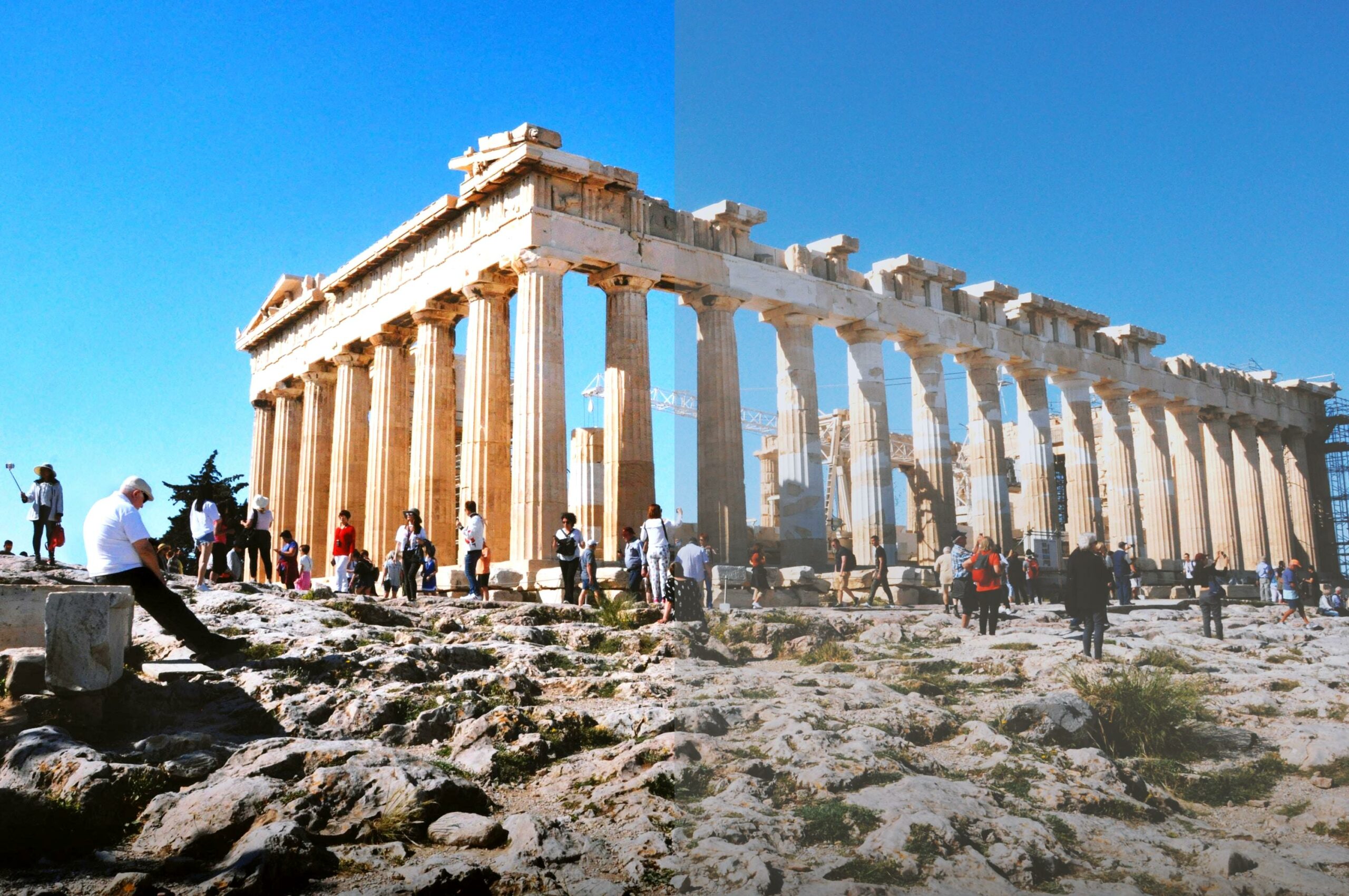Are you ready to dive into the enchanting city of Athens and unravel its secrets? Look no further! In this captivating article, we will embark on a journey through time and explore the ancient and modern wonders of Athens. Join me as we uncover 10 fascinating fun facts about this vibrant metropolis, leaving you craving for more knowledge about its rich history and undeniable allure. So fasten your seatbelts, fellow adventurers, and get ready to be amazed by the intriguing tales that Athens has to offer!
Fun Facts about Athens
Athens, the legendary city of gods and philosophers, holds countless captivating stories within its ancient walls. Delve into its history and culture as we unravel ten fascinating fun facts about Athens.
1. Athens: Europe’s Oldest Capital City
Known as the cradle of Western civilization, Athens has stood the test of time since the late Neolithic Era. With a rich heritage spanning thousands of years, this enchanting city offers a journey through history like no other.
Quote: “Step into the oldest capital city in Europe and witness the living legacy of ancient civilizations.”
2. The Birthplace of Democracy and Intellectual Brilliance
Athens is not only renowned for its monumental architecture but also for birthing the concept of democracy. This ancient city was a hotbed of philosophical and intellectual advancement, producing legendary thinkers like Plato and Aristotle.
Quote: “Walk the paths where democracy and wisdom flourished, and feel the echoes of brilliance in the air.”
3. The Marathon: A Run through Ancient Legends
Ever wondered about the origin of the word “marathon”? It stems from a legendary run to Athens in 490 B.C. by a messenger announcing the Greek victory over the Persians. This historic event led to the birth of the marathon race we know today.
Quote: “Follow in the footsteps of a legendary messenger and experience the spirit of triumph that lingers in Athens.”
4. Athens: A Cultural Icon
Athens proudly carries the title of being the first European Capital of Culture. Its vibrant arts scene, with theaters, galleries, and music venues, lures creatives and culture enthusiasts from all corners of the globe.
Quote: “Feel the heartbeat of creativity resonating through every corner of Athens, where art and culture collide.”
5. Acropolis: A UNESCO World Heritage Site
Standing tall over Athens, the Acropolis is a majestic marvel that has been awarded UNESCO World Heritage status. This awe-inspiring ancient citadel embodies the splendor of classical Greek architecture and holds within it the iconic Parthenon.
Quote: “Marvel at the breathtaking grandeur of the Acropolis, a testament to human ingenuity and architectural mastery.”
6. Athens: City of Marble
As you explore Athens, you’ll notice the gleaming white marble adorning its streets and buildings. It’s no wonder that the city is often referred to as the “city of marble,” showcasing its architectural magnificence and timeless elegance.
Quote: “Immerse yourself in the city of marble, where history and beauty intertwine in every intricate detail.”
7. The Marvelous Mountaintop Vistas
Nature’s gift to Athens comes in the form of four majestic mountains surrounding the city. Mount Aigaleo, Mount Parnitha, Mount Pentelicus, and Mount Hymettus provide stunning vistas and a glimpse into the awe-inspiring natural landscapes of Greece.
Quote: “Ascend to breathtaking heights and let the mountains unveil the secrets of Athens, revealing a tapestry of enchanting beauty.”
8. A Gastronomic Delight
Athens boasts a diverse culinary scene that embodies Greek traditions fused with international influences. From savory souvlaki to delectable baklava, the city’s culinary creations tantalize taste buds and provide a true feast for the senses.
Quote: “Indulge in a symphony of flavors and awaken your taste buds to the gastronomic wonders that Athens has to offer.”
9. Street Art Extravaganza
Colorful murals grace the city walls, effortlessly blending old-world charm with modern expression. Athens boasts a bustling street art scene that captures the essence of the city’s vibrant energy and creativity.
Quote: “Walk the streets and witness the open-air gallery, where vibrant murals tell tales of an ever-evolving Athens.”
10. An Enchanting Tapestry of Transportation
Navigating Athens is a breeze, thanks to its well-connected transportation system. Whether you prefer traversing the city via the metro, tram, buses, or taxis, it’s easy to explore every corner of this historical haven.
Quote: “Embark on a seamless journey through Athens, where a tapestry of transportation options awaits your exploration.”
Unraveling the captivating and lesser-known facts about Athens is like stepping into a time capsule that bridges the ancient world with the allure of the present. Athens beckons with open arms, inviting you to experience the magic of its rich heritage and vibrant culture.
Quote: “Let Athens enchant you with its timeless tales, whispered by its ancient ruins and celebrated through its vibrant spirit.”
Athens, the capital city of Greece, is a treasure trove of fascinating history and culture. Immerse yourself in the ancient world as you explore the enchanting streets and marvel at the stunning architecture. Discover the fact about Athens, like the fact that it was named after the goddess Athena, who won the city in a competition against Poseidon. To delve deeper into the captivating history of Athens, check out our comprehensive guide on known.URL fact about athens. Get ready to be transported to a world of wonder and intrigue!
A Glimpse into the Life of an Ancient Athenian
[youtube v=”ar8S6virCwM”]
The year is 427 BCE and Athens finds itself in the midst of the Peloponnesian War, a devastating conflict with Sparta and its allies. To protect themselves, the Athenians have retreated inside the walls surrounding their city and port, relying on their superior fleet and maritime empire for provisions. However, the cramped conditions and a recent plague have taken their toll on the population.
In the center of Athens, we meet archaeas and dexalea, a couple living their lives amidst the turmoil. Archaeas, a painter of high-class pottery, is relatively well off and takes a keen interest in the city’s affairs. Dexalea, on the other hand, is unable to participate in politics or own property. They are grateful that three of their four children have survived infancy.
Like many families in Athens, archaeas and dexalea own slaves who assist in the household chores and help raise their children. Thrata, a slave originally from Thrassi, is responsible for much of the housework. Additionally, there is a pedagogue named Phylon, who oversees the education of their son.
The day begins early for archaeas as there is a meeting of the ecclesia, the assembly of citizens, taking place at dawn. Before setting out, he performs a ritual by burning incense and pouring a libation at a small shrine in the courtyard, representing his household. Meanwhile, dexalea will spend the day teaching her daughters domestic skills and later seek some fresh air in the inner courtyard.
Archaes arrives at the agora, the civic and commercial heart of Athens, where he is greeted by a bustling square filled with his fellow citizens. The central monument serves as a notice board displaying the agenda for the meeting. On this particular day, the sole item of discussion is what action to take against the people of Midlaney, a city on the island of Lesbos, who have revolted against Athenian rule and have just been suppressed.
The meeting takes place on a hill known as the pnyx, meaning “tightly packed.” As the heralds purify the hill with pig’s blood, the crowd of five thousand citizens settle onto benches facing the platform. The presiding officer opens the meeting by inviting citizens to address the assembly. Views range from advocating mercy to seeking vengeance. Eventually, a motion is proposed to execute all the Mittalinans and enslave their women and children, and it passes with a majority vote.
After the meeting, archaeas returns to the agora to buy food and wine. There, many discuss the results, with some expressing dissatisfaction with the decision. When archaeas returns home, he shares the details of the debate with dexalea. She disagrees with the notion of killing both the innocent and the guilty, considering it to be harsh and counterproductive.
Later that evening, archaeas attends a symposium at a friend’s house, where the group of nine men drink wine and continue the discussion from the meeting. Archaeas stands by his belief in showing mercy, and eventually, his friends come to agree with him.
Before dawn breaks, something remarkable occurs. Heralds circulate throughout Athens, announcing that the council has called another meeting. This time, the debate is equally intense, but a new resolution narrowly passes, stating that only the leaders of the revolt should be executed.
However, a problem arises. A ship has already been dispatched with orders to carry out the first resolution, so another ship is hastily sent to countermand the previous order. Athens races against time as it grapples with the challenges of its democratic system.
In conclusion, this glimpse into the life of an ancient Athenian reveals the complexities and daily challenges faced by its citizens during a time of war and political decision-making. The events highlight the varying opinions and moral dilemmas that individuals and the city as a whole must confront.
“The events of the day expose the realities and moral complexities of living in ancient Athens.”
FAQ
Question 1
What is the history of Athens?
Answer 1
Athens is Europe’s oldest capital city and has been inhabited since the late Neolithic Era. It is the birthplace of democracy and has produced many famous philosophers, artists, and writers.
Question 2
Where were the ancient Olympic games held?
Answer 2
The ancient Olympic games were never actually held in Athens, but in Olympia, a town in western Greece.
Question 3
What is the significance of the marathon?
Answer 3
The marathon was named after a long run to Athens in 490 B.C. by a messenger who announced the Greek victory over the Persians.
Question 4
What are some notable landmarks in Athens?
Answer 4
Athens is home to one of Greece’s 18 UNESCO World Heritage Sites, the Acropolis. It also has world-class landmarks such as the Parthenon and the Panathenaic Stadium.
Question 5
What is the weather like in Athens?
Answer 5
The weather in Athens is notoriously difficult to predict and varies widely within the city due to its complex landscape built around a number of hills.
“`json
“`
















